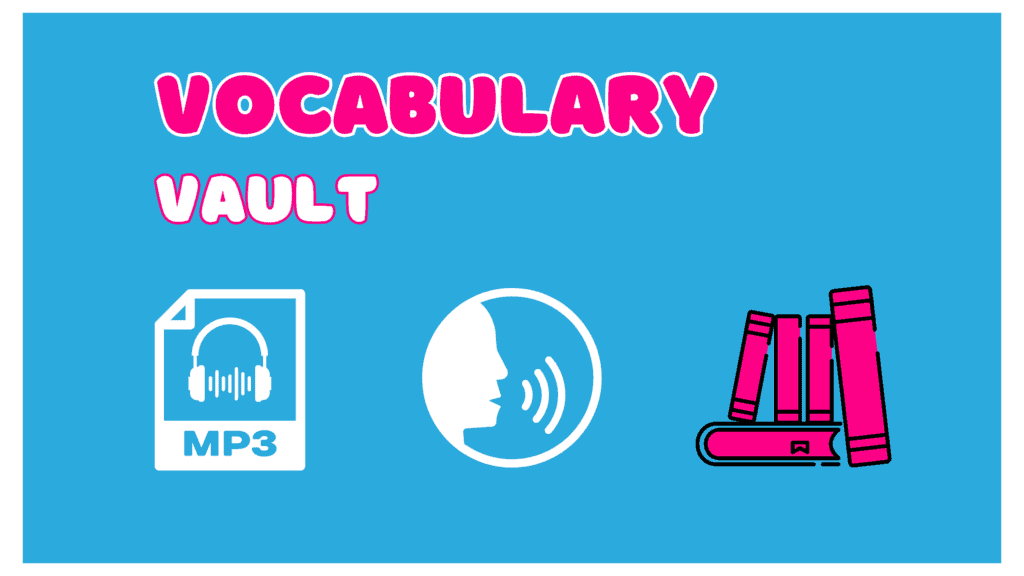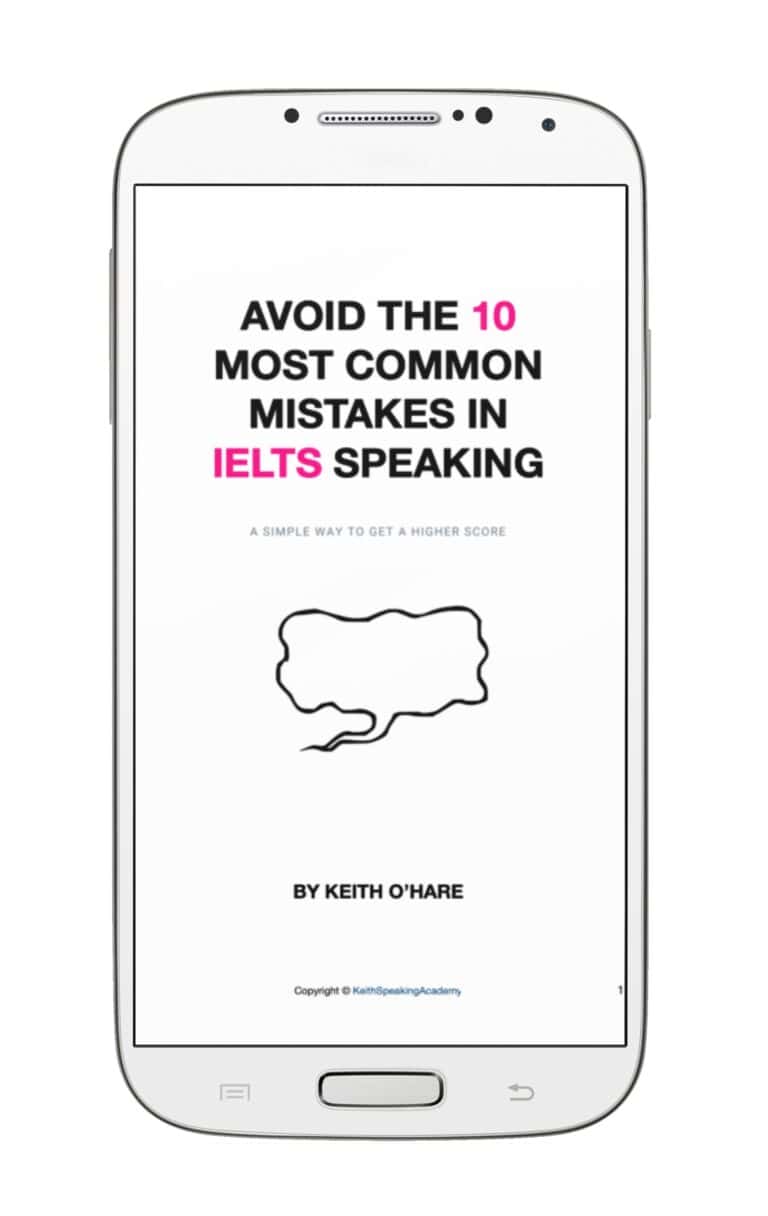IELTS Speaking Lesson about The Internet
👇 Take this lesson with you! 👇
Table of Contents
IELTS Speaking vocabulary: The internet
Here is some useful vocabulary to talk about using the Internet, as well as some common Internet slang.
- To be / go / get online
- To be / go / get offline
- To browse (v.)
I like to browse websites about food and cooking
I browse the Internet for an hour a day to research my classes.
- a browser (n.)
The most popular browsers are Chrome, Safari, Firefox, Internet Explorer and Opera
- To surf (v.) = to explore the Internet
- A silver surfer (Pers.) = an elderly or retired person who uses the Internet a lot
- Privacy (n.)
- Private (adj.)
You need to respect everyone’s privacy
Digital privacy is so important these days
Keep your password private
- Safety (n.)
- Safe (adj.)
Internet safety is of prime importance (=most important)
Keep your passwords safe
- Rely (v.) = to trust or depend on
- Reliable (adj.) = can be trusted
- Reliability (n.)
Is the BBC a reliable source?
I am not sure about the reliability of information on the Internet
Synonyms (adjectives)
- reliable
- trustworthy
- dependable
- valid
Negative words
- Troll (v.) = make an offensive/insulting/aggressive online post
- Troll – (n.) = the person who trolls
- Cyberbully (n.) = a person who attacks ‘weaker’ people online
- Predator (n.) = the person who stalks (=to follow with a bad intention) others online
Common Phrasal verbs
- Scroll up / down = move up and down a page online
- Click on / off
- Print out
- To shut down = turn off (your computer)
- Swipe through / up / down / left / right
- Log out / in

Internet slang
LOL – laugh out loud
BRB – Be right back
BTW – by the way
LMK – let me know
IMHO – in my humble / honest opinion
IELTS Speaking discussion: The internet and you
How has the Internet changed our lives, our work and our families
Here are some collocations you may use when discussing this topic.
- Remote working / studying / meeting / learning
- Virtual world / platform / reality / class / assistant
- Online courses / shopping / dating / banking
- Video game / streaming
- Access mode / area / information
- Easy communication
Find some great ideas and vocabulary to talk about this topic here:
https://www.neosperience.com/blog/10-ways-the-internet-has-changed-the-way-we-live-and-do-business/
IELTS listening: The internet and children
Does the Internet have a negative influence on children? What do you think?
Watch the video and answer these questions.
- Which of your ideas appear in this listening passage.
- Find the collocations used with these words:
- Consider many __________
- Learning ____________
- ____________ safety
- Heated _____________
- _______ your skills
Tapescript
Does the Internet have a negative influence on children?
Click arrow to open/close transcript
This is a really interesting question and quite a complex one, as there are many aspects to consider.
In a nutshell (=in short), I guess the short answer is – it depends on what you use the Internet for.
There are many activities and opportunities that the Internet offers and a large number can be beneficial for kids’ learning.
Such things as doing research, communicating with teachers and other children, making sharable presentations, playing games, all of these provide valuable learning opportunities.
Of course, teachers and parents need to be wary of (=be careful with) children’s privacy and safety online, you know they need to do their upmost (=do their best) to avoid cyberbullies and predators. These are key things that need to be passed on to children.
Talking about games. There’s a lot of heated discussion and disagreement about video games, especially violent ones, and how they can nudge (=encourage) children to become violent in so-called ‘real life’. But, there many studies show this is not the case (this is not true), almost the opposite, these shooting games help students hone their reaction skills and improve hand-eye coordination.
I suppose the big concern nowadays is more about social media on the Internet and the detrimental effect it can have on young adolescents (=teenagers).
From what I can make out (=I can understand), it seems to condition them to compare themselves with others, and to present a prefect self. It’s no surprise then, that this leads to reduced self-esteem and significant mental health problems for many young people.
Listening task answers:
Click arrow to open/close answers
Consider many ASPECTS
Learning OPPORTUNITIES
ONLINE safety
Heated DISCUSSION
HONE your skills
Idioms to talk about the internet

To get something from the horse’s mouth = to get news/information directly
This is reliable information, I got it from the horse’s mouth
To have something at your fingertips / at the click of a button = to have easy access
You have price comparisons and customer reviews at your fingertips / at the click of a button
To be a double-edged sword = to have a good and a bad side
The Internet is a double-edged sword
I can’t get my head around it = I don’t understand it
This software is too complicated, I can’t get my head around it
It rings a bell = it sound familiar
I think I know that software, at least the name rings a bell
A digital native = someone who has grown up with computers and the Internet
It seems you are all digital natives, but I am a digital immigrant!
Pronunciation Files For Vocabulary From My Best Live Lessons
Use Words EASILY in English Conversations!
More Free Lessons
If you liked this lesson, leave a comment below!
There are more lessons you can follow in the links below too.
HANDICRAFTS in IELTS Speaking. Vocabulary and collocations to talk about handicrafts.
TECHNOLOGY in IELTS Speaking How to talk about technology, the internet and artificial intelligence.
VIRTUAL WORLD in IELTS Speaking Vocabulary and ideas to talk about the virtual world as well as some listening tasks.


